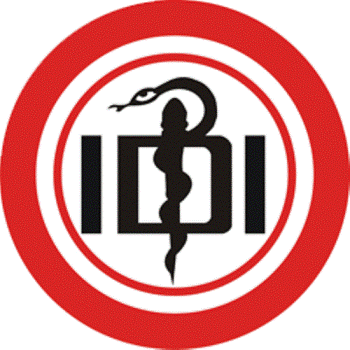Royal College of Obstetricians and Gynaecologists
new paper to be published in The Obstetrician & Gynaecologist (TOG) examines the relationship between abortion and domestic violence. The authors call for greater awareness about domestic violence, and underline the need to support women seeking to terminate unwanted pregnancies associated with intimate partner violence.
In England and Wales, 20% of women report being physically assaulted by a current or former partner at some point in their lives. A significant number of women requesting an abortion have been, or still are, in violent relationships.
The high prevalence of violence during pregnancy is well recognised. The 2003-2005 Confidential Enquiry into Maternal and Child Health (CEMACH) reported that 19 pregnant or recently delivered women were murdered by their partner. 70 out of 295 women who died from all causes had information consistent with experience of domestic violence documented in their maternity records.
Whereas there has been some recent focus on the role of maternity services as a point of early intervention for women affected by domestic violence, there is less awareness about domestic violence and unwanted pregnancy and abortion.
A recent English study found that more than one in three women seeking abortion had experienced lifetime domestic violence. In the previous year, 19.5% had been physically assaulted and 3.7% had had forced sexual intercourse. A link was also found between domestic violence and women seeking repeat abortions. 30% of women having a second abortion reported relationship violence and women having a third or subsequent abortion were over 2.5 times as likely to report a history of physical or sexual abuse by a male partner.
The authors express concern at the widespread disparities and inequalities in access to abortion under the NHS. This may be particularly difficult for women who fear disclosing pregnancy or termination to violent partners, and for women who have been isolated from sources of social support.
They stress that some women are protected by abortion from continuing with unwanted pregnancies and are enabled to escape violent relationships. Proposed liberalisation or restrictions of abortion law may particularly affect those women presenting late, in violent relationships or with little social support or financial resources.
Lead author, Dr. Gillian Aston, from the Florence Nightingale School of Nursing and Midwifery at King’s College London, said “Domestic violence related to abortion is a serious social and public health issue that has received insufficient attention in the UK. The risks associated with domestic violence can be acute with the health and safety of women of concern.
“Whereas different groups may disagree about the moral status of the fetus, there must be common ground that violence against pregnant women is intolerable. Doctors and health professionals working in a woman’s health sector that provides abortion services are in a prime position to identify and provide support for women experiencing domestic violence.”
Jason Waugh, editor-in-chief of TOG, said “These findings highlight the need for health professionals to be aware of, and sensitive to, the possibility of violence in the lives of women seeking abortion. Our society should have zero tolerance for domestic violence.
“Given the high prevalence of violence in pregnancy, it is important to ask women seeking both maternity and abortion services about domestic violence. Knowing about domestic violence can help to ensure that women are provided with the support and information that they need.”
Ends
Notes
The Obstetrician & Gynaecologist (TOG) is published quarterly and is the Royal College of Obstetricians and Gynaecologists’ (RCOG) journal for continuing professional development. TOG is an editorially independent, peer-reviewed journal which aims to provide all health professionals working within the field of obstetrics and gynaecology with an up-to-date, peer reviewed information resource delivered through a range of current, educational articles and providing them with CPD creditable questions. TOG is hosted online by Stanford University’s HighWire Press at: http://onlinetog.org.
To arrange an interview please contact Emilia Ordolis, RCOG PR Officer, at +44 (0)20 7772 6357.
Reference
Aston G, Bewley S. Abortion and domestic violence. The Obstetrician & Gynaecologist 2009;11:163–8.
Lewis G, editor. Saving Mothers’ Lives: Reviewing Maternal Deaths to Make Motherhood Safer: 2003-2005. The Seventh Report on Confidential Enquiries into Maternal Deaths in the United Kingdom. London: CEMACH; 2007.
Categories
- Registered Charity No. 213280
- Royal College of Obstetricians and Gynaecologists © 2009
24.jpg)



















No comments:
Post a Comment